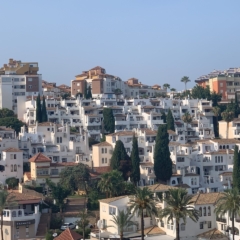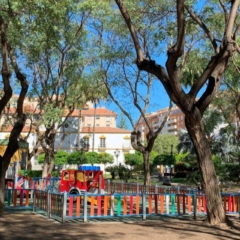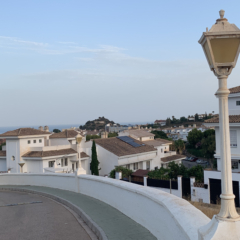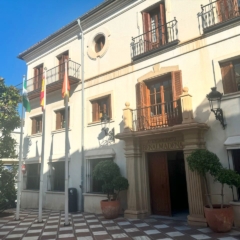How to buy a house in Spain like a pro
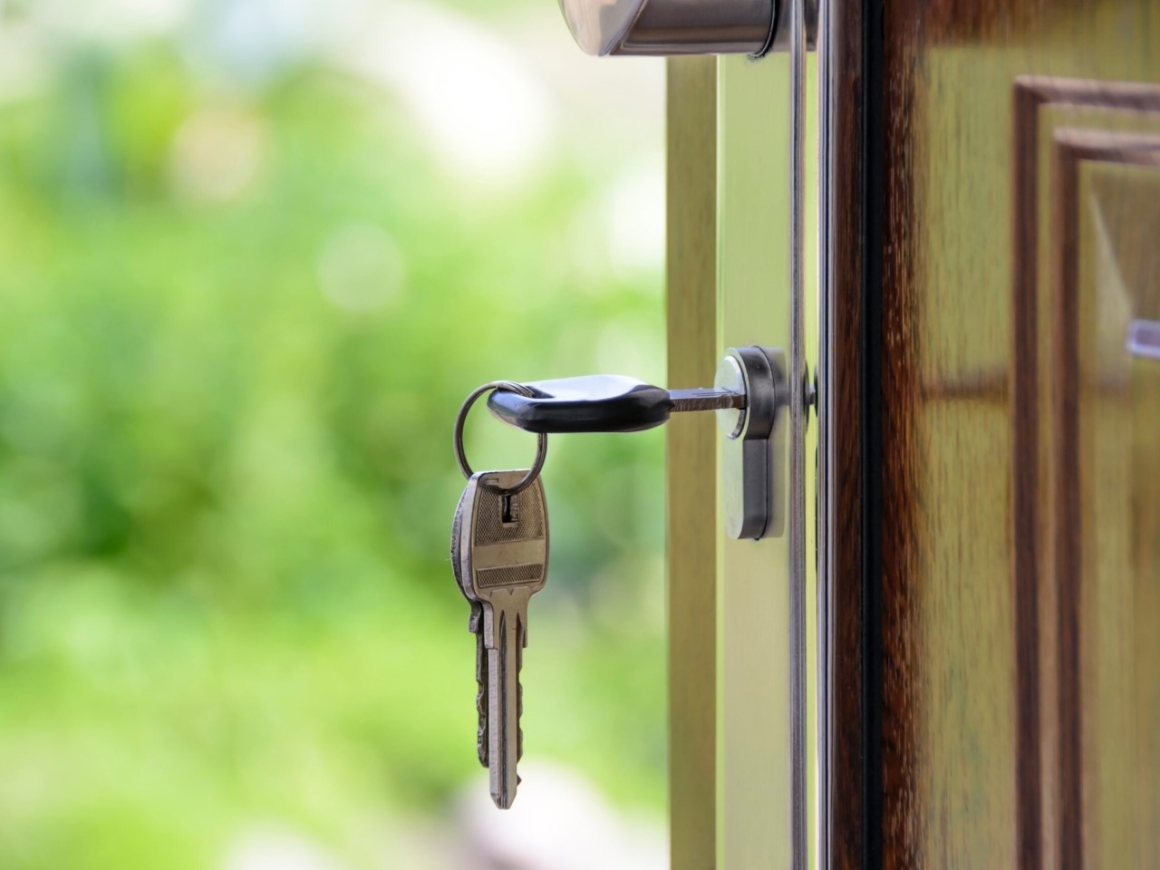
If you are wondering about how to buy a house in Spain – or an apartment, or any real estate property – you came to the right place for information on how this works. We’ll see here how the property buying process in Spain goes from choosing the place till you have the property registered in your name and beyond – even things that happen years after the key exchange!
Choosing the place
A good start to find the place of your dreams is checking on Idealista (this is not an ad. There are other websites, but I found that pretty much every property announced elsewhere is also listed on idealista. Other options are Fotocasa and the Facebook marketplace, which can have some bargains). Once you found something interesting, don’t bother sending an e-mail or chat message – the real state companies rarely answer and even if they do, they don’t take you seriously. Call their phone and book a visit.
Now, this visit is never for today or tomorrow. Best case scenario, it is for the end of this week. This had me puzzled at first, but I believe that they do some staging in the place – cleaning, leaving windows open for a few hours to hide odors, fluffing the cushions and so on.
Reservation
If you like the place and decide you want to buy it, you can make a lower offer. Making an offer is pretty much expected, and though it doesn’t necessarily mean it will be accepted, it is not offensive to bargain. On the other hand, if the place has many people interested, you may just get bypassed by someone else that didn’t make a lower offer, so take in consideration how long they have been trying to sell the place before deciding if it is worth or not to make a lower offer. If the offer is accepted, you move on to the next stage, which is the Reservation. Now it gets interesting.
It works like this: buyer and seller will have a reservation contract, in which the buyer is supposed to pay a certain amount, usually around 1% of the agreed price of the property. On the other side, the seller agrees to not sell the property to anyone else for the next days – 10 days, 30 days, it varies. The contract will also tell what happens on the end of that period, and it should be something along the lines that either the prospective buyer decides to buy, and those 1% will be part of the downpayment, or the buyer declines and receives the money back.
On signing the reservation contract, the seller should provide a copy of a document called “Nota Simple” (simple note), a simplified version of the property’s document, containing information about the property, ownership, registration number and so on.
Getting a lawyer
During the reservation period, if the house will be bought with a mortgage, the buyer should get an ok from the bank. The reservation period is also the time to get a lawyer to check if the paperwork of the property is correct. This is strongly recommended. The real estate agent may try to push you to have their lawyer do this, but I’d recommend against it, as their lawyer has their interest at heart, not yours. The lawyer will get the Nota Simple and check if the data shown there corresponds with the data in the public archives and notaries.
He will also check if there are any debts pending or any irregularity regarding the property. The lawyer will then inform the potential buyer of his findings. Lawyers can also function as representatives of the buyer and make the next contract, depending on what you agree.
It is easy to find property lawyers in Spain on google. I used the services of Alvarez Ramos Abogados and recommend them. They charged me €50,00 for the verification of the property and provided the information within 5 days of request. If I wanted them to represent me in the buying process, though, the fee would have been in the thousands.
Downpayment and Contracto de Arras
With bank and lawyers’ green lights, the process can move on, as long as you are still within your reservation days, or if no one else has put a reservation. The next stage to buy a house in Spain is to sign the Contracto de Arras, the big deal. Typically, the Arras will state that about 10% of the property price should be paid upfront, upon signing this contract. This payment can be done through bank transfer or with a cashier’s check delivered on the day of signing the contract.
The 1% paid for reservation counts as part of this 10%. This contract will state the terms of the rest of the payment and the deadlines. You will need to have a NIE to get this contract, as it is a mandatory document for all participants.
Cashier’s check
A cashier’s check is a check emitted by the bank in your name. To get one, you have to go to your bank and ask for it, informing the amount you want the cashier’s check for. That is, if you already have a bank account in Spain; if not, ask banks if they issue a cashier’s check to a non-client. Some do. The bank then verifies that you have that amount in your account and locks that sum – meaning that you can’t spend it – giving you, in turn, a cashier check. The amount that was locked from the account can only be transfered through that cashier’s check. It is a way to garantee that particular check will have funds.
When paying for a property with your own money (not a bank loan) you may need to deliver a cashier’s check for the Arras and certainly will need one for the final payment, at the Notary. You can get a cashier’s check from most banks, provided that you transfer the amount to them; they lock that amount and give you the check. Some banks charge for this check, and it can cost hundreds of euros, while others don’t charge their clients for it. Client or not, you need to book an appointment with a bank agency to obtain this check, so book ahead of your Notary appointment.
Seller’s taxes
Notice that there are some taxes in the transaction that should be paid by the sellers and others by the buyer. Make sure the contract is clear about that. When you buy a house in Spain, the taxes that the sellers have to pay are deducted of the final price of the sale and are paid by the buyer. Complex? Let me give an example: suppose the agreed property price is 100k and the seller’s tax is 3k. The buyer will pay 97k to the seller for the property and 3k to the tax agency (we will talk more about this payment later in this post).
The amount of taxes due is higher if the seller is a non-resident of Spain. It doesn’t affect the sales price, meaning, how much you pay in total; but it affects how much you pay to the seller and how much will be paid for the tax collection agency.
Property buying in Spain works like this: if, in the example we used before, the seller was a Spanish resident, the taxes due would be 3k; if not, the taxes would be 5k, and the amount to be paid to the seller would be only 95k. This has to be known before making the cashier’s check, so you can get the amount right. The residency status of the seller will be verified by the Notary, when it is too late to change a cashier’s check.
Buyer’s taxes
Buyer’s pay ITP (impuesto de transmisiones patrimoniales, property transfer tax) and notary’s fees. ITP varies from 6-10% depending on the autonomous community and on the price of the property. In Andalusia, though, it has been fixed at 7% since april 2001. Notary’s fees add about 1-2%. This means that, one should add at least 9% to calculate the total amount spent; better make it 10% to also include lawyers’ fees and other minor costs.
In the example we are using, for a property advertised for 100k, in Andalusia, the total cost would be around 110k, divided as follows:
– 97k or 95k for the seller, depending on his residency situation;
– 3k or 5k paid as seller’s taxes;
– 7k for ITP, buyer’s taxes;
– up to 2k for notary fees;
– around 1k for lawyer costs, cashier checks costs and other minor costs.
Going to the Notaria (notary)
Buyer or seller (in our case, the real estate agent) then books an appointment with the Notary to conclude the sale. On that date, both parts must appear in person at the notary (or send their power-of-attorney representatives). There the buyer delivers the second cashier’s check, completing the payment for the seller, the seller gives the keys to the property and both parts sign documents, all in front of the notary, which will also read the deed of property transmission and make sure everybody understands the terms. If someone doesn’t speak Spanish, a translator is mandatory, and even the translator must provide a NIE. Below, the Notary in Benalmadena.
Registering the property
All done! Well, not really. The document received on Notary day is temporary. It is called a Copy of the register. The real deed will be provided about a month later, when the Notary calls the sales representative (in our case, the real estate agent, that was working for the seller) and informs that the document is ready. With this final document in hand, it is possible to book an appointment at the Registro de la Propriedad office (Property registry). That’s when you pay the buyer’s taxes, the notary’s fee and make the property transfer official. Below, a view of the entrance of the Registro de la Propriedade de Benalmádena.
Paying the seller’s tax
The property is officially transferred to the new owner, but – surprise! – the seller’s taxes, which were discounted from the property price, are still due. And these can only be paid after the Town Hall issues the bill – in Benalmadena, it took 2 years; my gestor said that in Torremolinos it takes only two months. It clearly varies from place to place, so asking the real estate agent for a time reference would be a good idea, so you don’t get caught by surprise years ahead.
Just one more thing…
During negotiations, ask the sellers or the real estate agent if the property has a tourist rental permit. That’s because (at least in Benalmadena) homeowners get a discount on the yearly property taxes (called IBI) if they live (meaning, if their Padrón states that they live) in their property, but that discount does not apply to properties that have such permit. It shouldn’t be a deal breaker, as cancelling the permit is a simple procedure, but if it is not cancelled, the property tax will be considerably higher.
Conclusion
Juicy, right? I hope this post has been useful and I wish I knew it all before I bought my apartment. I wouldn’t have paid two years of extra-high IBI, for instance. I consider this one of the most important posts in the blog because it can save you quite a few bucks!
The whole procedure is a bit complex and well, very bureaucratic, but it is better that you know how it works. So now that you are a pro, you are aware of how it is done and how long it takes to buy a house in Spain. Well done and welcome!
